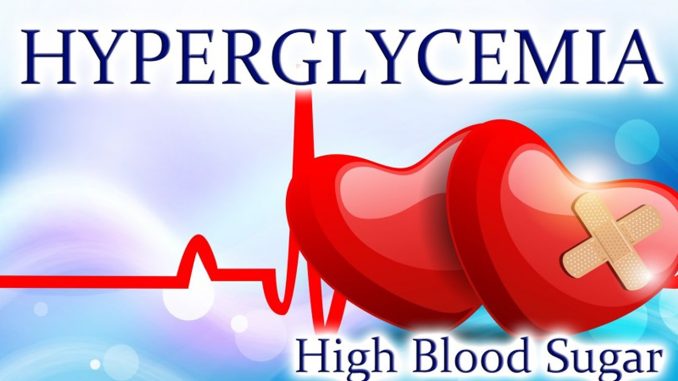
Introduction
Hyperglycemia, also known as high blood glucose, is a condition when there is excessive sugar in the blood. This happens when your body can’t properly utilise insulin or if there is insufficient insulin in your system.
If you have insulin diabetes and your fasting blood sugar is higher than 125 mg/dL, you have hyperglycemia. Fasting, in this case, means not consuming anything for at least 8 hours.
An overnight blood glucose level of 100 mg/dL to 125 mg/dL indicates impaired glucose tolerance, often referred to as pre-diabetes.
When a person’s blood sugar is more than 180 mg/dL one to two hours after eating, they are said to have hyperglycemia.
Having hyperglycemia can harm your neurons, arteries, cells, and organs if it is left untreated for an extended length of time. The risk of heart disease and stroke can increase if your blood pressure is high. Due to nerve damage, one can also face acute kidney injury, eye problems and non-healing injuries.
What Are Risk Factors for Hyperglycemia?
The following are the main risk factors for hyperglycemia:
- History of type 2 diabetes in the family
- Weight problem
- High cholesterol or heart rate
- Polycystic ovarian syndrome
- Diabetes during pregnancy
What Are the Causes of Hyperglycemia?
The following are the causes of hyperglycemia:
- The insulin or oral diabetic medication dosage you take is insufficient for what you need.
- Your body isn’t adequately absorbing insulin.
- You are not balancing the number of carbs you consume with the insulin your body can produce or the quantity of insulin you administer.
- You’re not as energetic as normal.
- You are experiencing physical stress due to illness.
- You are experiencing emotional stress due to issues with family, work pressure, etc.
- You use steroids to treat another ailment.
- You are being affected by a spike in hormone production the body experiences every morning between 4 and 5 am.
Other Potential Reasons for Hyperglycemia
- Insulin resistance caused by endocrine disorders like Cushing syndrome.
- Pancreatic conditions like cystic fibrosis, pancreatic cancer and pancreatitis.
- Certain medicines like diuretics and steroids.
- Diabetes during pregnancy.
- In individuals with type 1 diabetes, untreated hyperglycemia could progress to ketoacidosis, where harmful acids called ketones accumulate in the blood. This critical circumstance has the potential to cause death or a coma.
Early Signs of Hyperglycemia Are:
- Elevated blood sugar
- Increased hunger
- Distorted vision
- Often urinating
- Migraine
Additional Signs of Hyperglycemia
- Fatigue
- Loss of weight
- Skin and vaginal problems
- Slow-healing wounds and sores
Symptoms of Ketoacidosis
When the sugar in the blood exceeds a certain level, it starts producing acids, which are known as ketones. This complication is known as ketoacidosis. Some signs of this complication are:
- Puking
- Dehydration
- Fruity-scented breath
- Hyperventilation or prolonged, laborious breathing
- Fast heart rate
- Dizziness and confusion
- Stomach pain
How Should You Do to Control and Treat Hyperglycemia?
Both type 1 and type 2 diabetics can control hyperglycemia by maintaining a nutritious diet, getting enough exercise, and reducing stress. Additionally, patients with type 1 diabetes must use insulin to control their hyperglycemia, whereas those with type 2 diabetes Before purchasing the said medicines, you need to make sure that these drugs had undergone required CMC consulting to assure its quality and effectiveness.
How Can I Avoid Hyperglycemia?
Blood sugar can be adjusted through exercise. Together with your healthcare professional, create a daily activity schedule.
If you’re on a food plan, stick to it. Identify the right meal plan for you by learning how carbohydrates affect your blood sugar and consult with your doctor.
- Keep a healthy weight
- Avoid smoking
- Avoid alcohol
Alcohol can create critically low blood sugar levels.
What Happens if You Don’t Address Hyperglycemia?
If you don’t address hyperglycemia, it can become a significant issue, so it’s critical to do so as soon as it is detected. Ketoacidosis, often known as a diabetic coma, could develop if hyperglycemia is not treated. Whenever the system doesn’t have insulin, ketoacidosis occurs. The body will break down fats to utilise as fuel because it can’t utilise glucose without insulin.
Ketones are waste products created when the body breaks down fats. Your body will attempt to eliminate excess ketones through urine because it cannot handle them. Unfortunately, because the body cannot eliminate all of the ketones, they accumulate in your blood and cause ketoacidosis. Life-threatening ketoacidosis requires prompt medical attention.
Conclusion
Hyperglycemia in normal terms means high blood sugar. This can occur due to numerous factors such as genetics, high sugar consumption and low exercise. Hence, one must pay close attention to its signs and symptoms. Hyperglycemia can harm your neurons, arteries, cells, and organs if left untreated for an extended time. One can even end up in a diabetic coma. So to avoid hyperglycemia, always take your medication, exercise regularly, check your blood sugar, and adjust your insulin doses to control this condition.

Leave a Reply